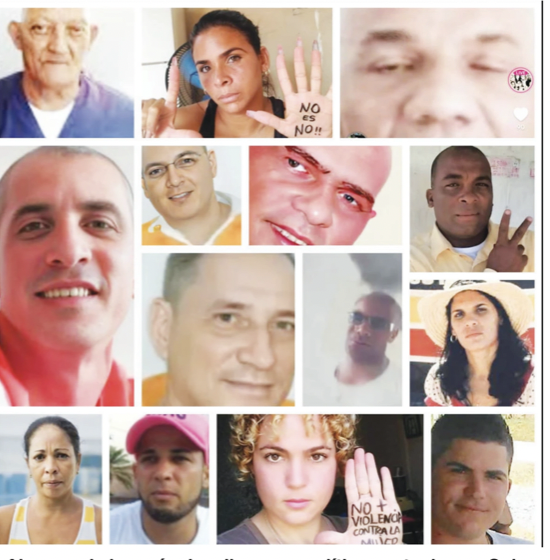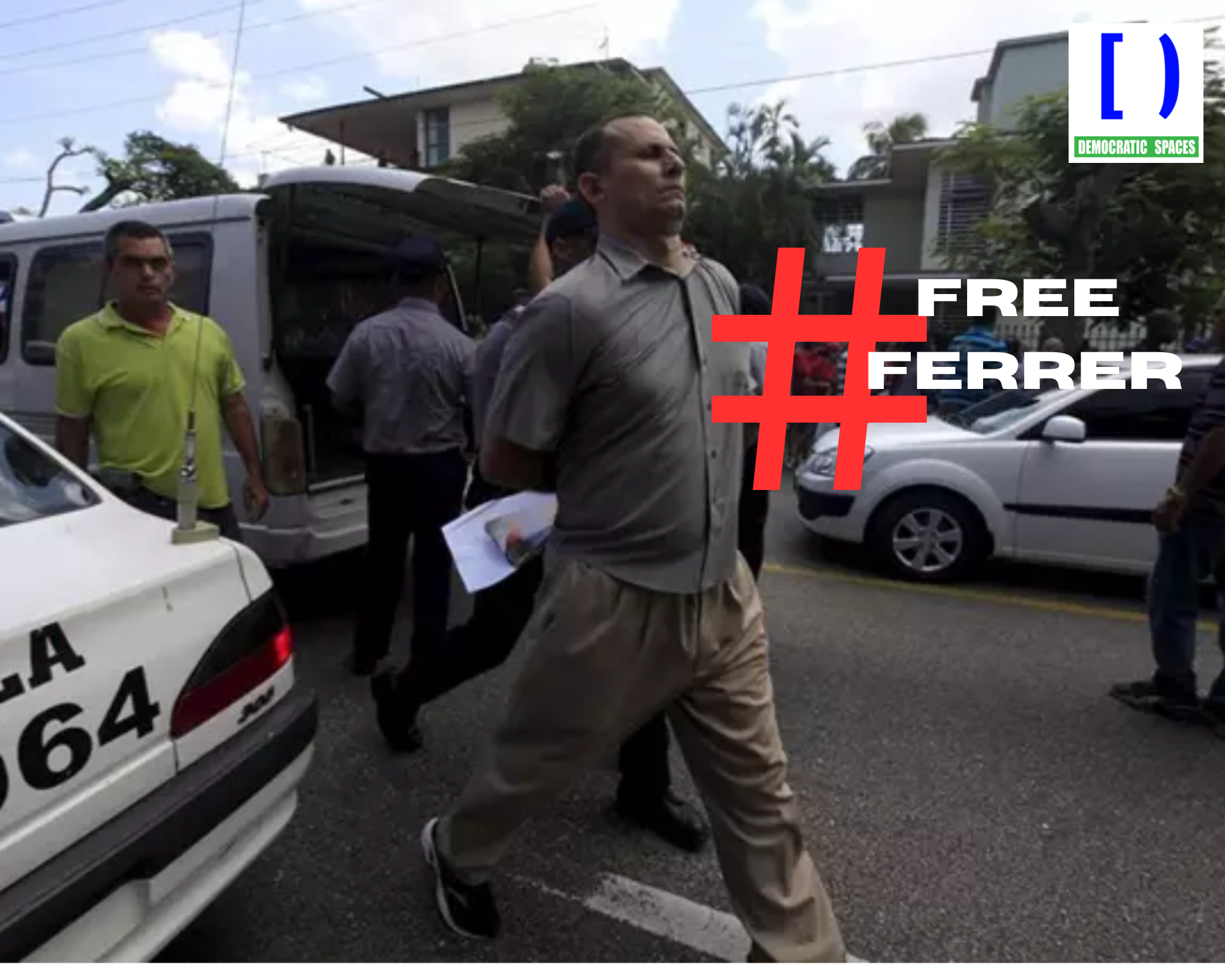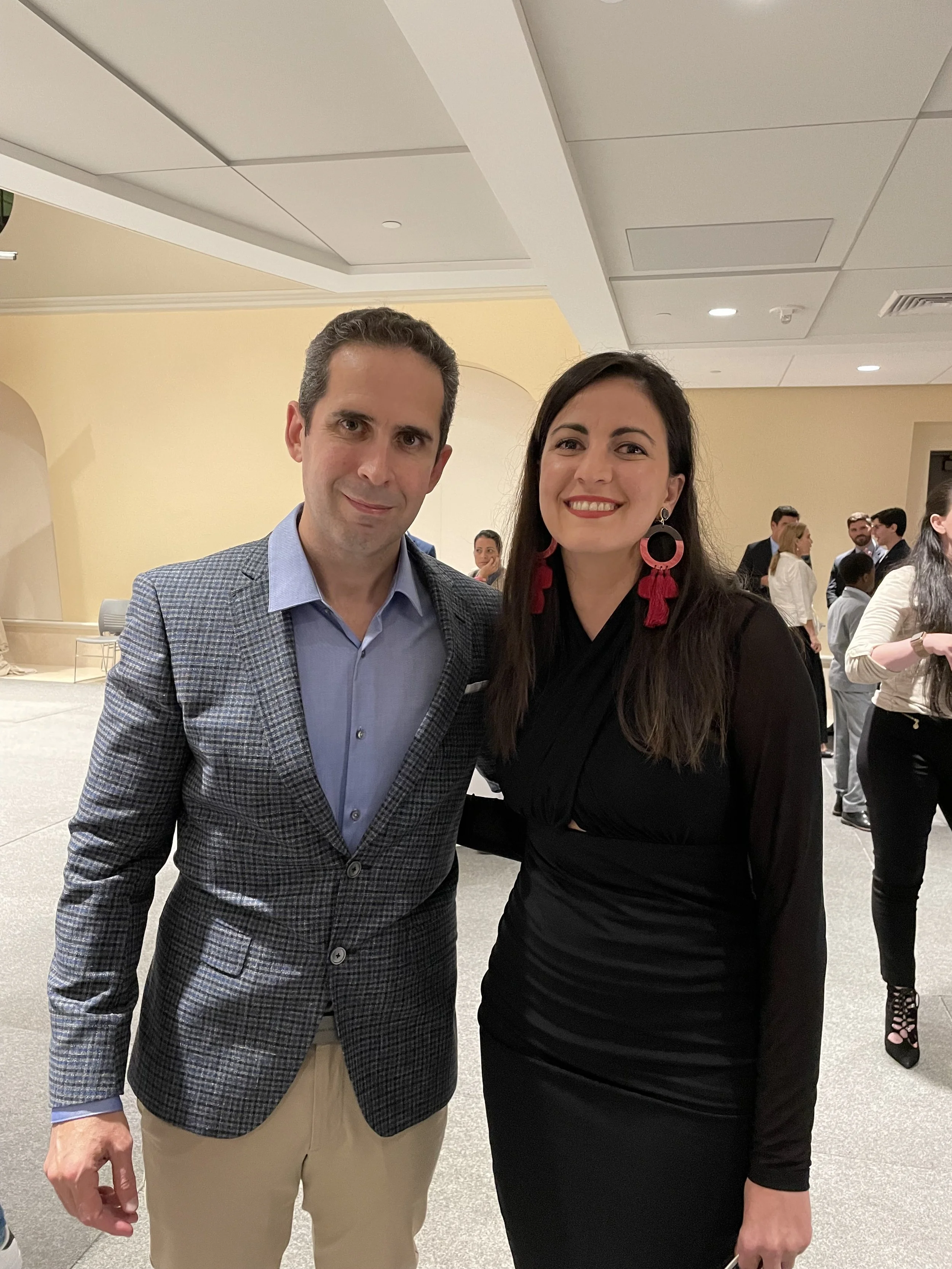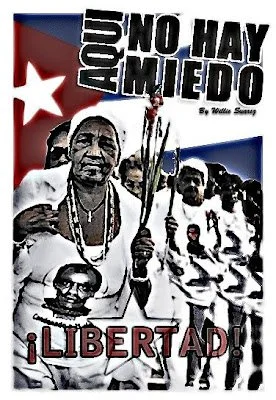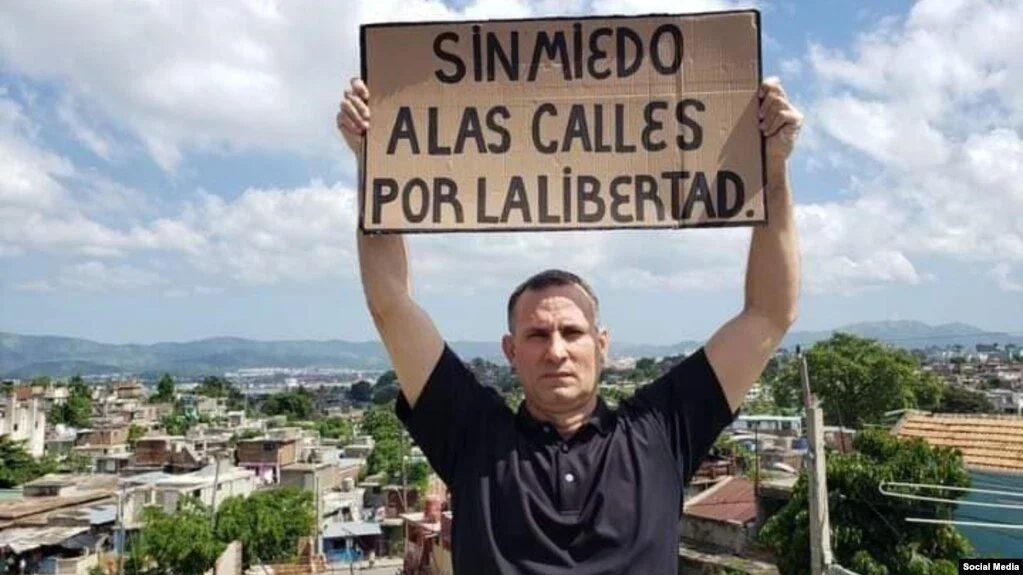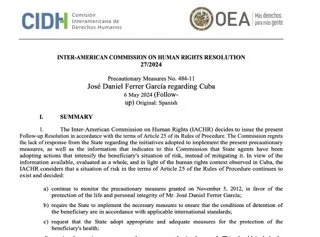As Hurricane Melisa bears down on Cuba, this op-ed reveals how a totalitarian system turns every natural disaster into a human-made catastrophe. In a nation without independent organizations or free citizens to deliver aid, relief becomes control — and survival depends not on government support, but on freedom itself.
Read MoreOctober 13, 2025– Ontario, Canada. Democratic Spaces, a Canadian rights-based NGO, expresses its solidarity with Cuban pro-democracy leader and four-time prisoner of conscience José Daniel Ferrer, who has arrived in the United States after being forced into exile. After enduring years of brutal imprisonment and persecution, Ferrer’s exile marks the continuation of his lifelong, peaceful struggle for freedom and human dignity. For over three decades, he has embodied moral courage and civic leadership in Cuba’s fight for democracy. On this date—significant in Cuba’s history of independence—Ferrer carries the torch of Céspedes and Martí, reminding the world that Cuba’s destiny must still be freedom.
Read MoreDemocratic Spaces proudly celebrates the election of Rosa María Payá as Commissioner to the Inter-American Commission on Human Rights (IACHR) for the 2026–2029 term, confirmed at the 55th Regular Session of the OAS General Assembly in St. John’s, Antigua and Barbuda.
Ms. Payá is the first Cuban ever elected to serve as IACHR Commissioner and secured the highest number of votes among all candidates, with 20 out of 32 countries supporting her candidacy. This historic result reflects a success of U.S. diplomacy in the region and a clear demonstration of the Cuban regime’s weakening influence in the hemisphere, despite its attempts to silence dissenting voices through character assassination and complicity.
An internationally recognized human rights advocate, Rosa María Payá has dedicated her life to promoting democracy, freedom of expression, and human dignity, inspiring movements across Latin America and beyond.
Read MoreDemocratic Spaces strongly condemns the arbitrary re-imprisonment of Cuban pro-democracy leaders José Daniel Ferrer and Félix Navarro. We denounce the detention of Dr. Nelva Ortega and her 5-year-old son, and the regime’s new legal aberration: forcing Ferrer to restart his unjust four-year sentence. These actions reflect the Cuban dictatorship’s deepening repression and use of political prisoners as bargaining chips. We call for the immediate and unconditional release of all Cuban political prisoners and urge the international community not to remain silent.
Read MoreDemocratic Spaces, a Canadian human rights organization that advocates for democracy and freedom in Cuba, proudly announces the nomination of Jorge Martín Perdomo, a Cuban political prisoner, for the Graciela Fernández Meijide Award for the Defense of Human Rights, presented by the CADAL Foundation.
Read MoreDemocratic Spaces Statement: Defending the Voice of Freedom – Support for Radio and TV Martí. Since its inception in May 1985, Radio and TV Martí have served as the backbone of truthful reporting on Cuba. Radio Martí has not only been an informative window but also a bridge of unity for generations of Cubans who have grown up in a country where the media is monopolized by the ruling regime—used as a tool to indoctrinate, misinform, and manipulate. Its existence has transcended into Cuba’s popular culture, standing as a testament to the people’s resistance against state propaganda.
Read MoreToday, February 23, is a day of mourning for those who cherish freedom. We remember a state crime—the death, 15 years ago, of Orlando Zapata a Cuban activist and political prisoner who spent more than two months on a hunger strike and was denied water for 18 days after being brutally beaten. His executioners were Raúl Castro and Filiberto Hernández Ruiz, the head of Kilo 8 Prison in Camagüey.
Read MoreUkrainian President Volodymyr Zelensky has sounded the alarm: Russia is preparing to deploy 100,000 troops to Belarus under the guise of military exercises—just as it did before launching its full-scale invasion of Ukraine in 2022. He warns that this buildup could be a precursor to an incursion into a NATO country like Poland or Lithuania. But this isn't just about Russia and Belarus. The Cuban regime, Moscow’s closest ally in the Western Hemisphere, is playing a silent yet crucial role in this escalating conflict.
Read MoreDemocratic Spaces celebrates the excarceration of José Daniel Ferrer García, a larger-than-life figure, a symbol of resistance, courage, and perseverance in the peaceful, steadfast, and determined struggle for democracy in Cuba—a cause to which he has dedicated 30 years of his life. Since Sunday, July 11, 2021, we have taken great pride in contributing our part to make his plight visible to the world, calling on the Government of Canada and other democratic nations for his release. Through hundreds of campaigns, we have demanded proof of life and justice for him.
Read MoreThe Cuban dictatorship has once again activated its revolving door of repression. Following its January 15 announcement of penal benefits for 553 individuals, Democratic Spaces demands the immediate and unconditional release of over 1,000 political prisoners unjustly detained for exercising fundamental human rights, including freedom of expression, press, and association.
Read MoreDemocratic Spaces summarizes Marco Rubio's responses to Senator Rick Scott's questions regarding his views on the situations in Haiti, Nicaragua, Venezuela, and Cuba during the Senate confirmation hearing.
Read MoreDemocratic Spaces unequivocally condemns the sham inauguration of Nicolás Maduro as Venezuela’s so-called “reelected” president on January 10, 2025, following his regime’s blatant electoral fraud during the July 28, 2024, elections.
Read MoreJosé Daniel Ferrer: A Symbol of Resilience in Cuba’s Fight for Freedom highlights the struggle to free Cuban pro-democracy leader José Daniel Ferrer. Despite decades of imprisonment and abuse, Ferrer remains a key advocate for democratic change. A recent Habeas Corpus petition underscores his illegal detention and calls for his immediate release. The campaign has gained global support from the European Parliament, U.S. legislators, and major human rights organizations.
Read MoreOP/ED: Michael Lima of Democratic Spaces contends that Rubio’s confirmation and a new Canadian government could redefine North American engagement in Latin America, fostering democratic reforms.
Read MoreMessage to the people of Cuba at a time millions across the island are suffering a brutal and complete violation of their political, civil, economic, and social rights at the hands of a ruling elite that imposes its power by force. Streamed live on Oct 19. 2024 in a Press Conferenced held by the Assembly of Cuban Resistance in Miami, Florida and streamed live via Martí Noticias, Cubanet, ADN Cuba, Radio Republic, and short wave radio given the nation wide outage in Cuba.
Read MoreThrough Democratic Spaces, as part of the Human Rights Coalition, we have submitted questions to Canada's Deputy Foreign Minister David Morrison and Prime Minister Justin Trudeau during the Public Hearings of the Inquiry Commission in Ottawa. Why the Government of Canada overlooks Cuba's authoritarian ties with Russia and China? Why Canada’s embassy in Cuba does not engage with peaceful activists, organizations, and independent journalists fighting for democracy?
Read MoreOn May 20, 2024, Michael Lima, Dir of Democratic Spaces reflected on the 39th anniversary of Radio Martí broadcasts to Cuba and its meaning circumventing censorship, while informing and connecting Cubans in the island and the global diaspora. My thoughts in English and Spanish.
Read MoreThe Inter-American Commission on Human Rights (IACHR) has decided to continue monitoring the precautionary measures granted to José Daniel Ferrer García on November 5, 2012, to protect his life and personal integrity.
Resolution 27/2024, issued on May 6, 2024, highlights Ferrer's current risks in prison, where he has been held since July 11, 2021: isolation, reported physical and psychological torture in appalling conditions, lack of access to medication, and the use of medical attention and medication as leverage by prison authorities, in addition to inadequate food. Urgent action is needed to address these grave violations of human rights.
Read MoreOver the last decade, hundreds of cases of transnational repression perpetrated by regimes such as China, Russia, Iran, Turkey and others have been documented. However, little attention has been paid to the Cuban case, which is paradoxical given the marked increase in this practice carried out openly by the island's regime in recent years. In this article, I will discuss the growing systematic nature of this practice and contend that it represents a desperate response from the Cuban regime to abruptly curb the rise of activism and democratic mobilization among Cubans in the diaspora. These individuals support their compatriots' calls for democratic change and economic reform in Cuba.
Read More